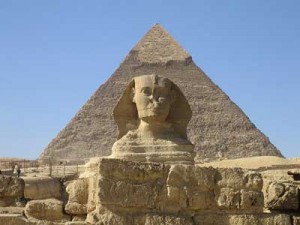The Rock was Christ – Exodus 17:1-7
Our passage this week features the people of God after leaving Egypt in the Exodus. Talk about an aspect of Egyptian history that you find particularly interesting. For example the pyramids, the Sphinx, mummies, the Nile, Coptic Orthodoxy, etc.
Rev. Muldoon said that the Israeilites were failing to let God be God. Considering the larger sweep of the story of the Exodus up to this point and then 17:1-3 how is it that they are failing to do this? Why is this a sin? What would it mean for them to allow God to be God? Why would this be better?
This can be applied to how we treat one another as God’s image-bearers also. Why is it important that we allow other people to be who they are rather than to be someone/thing else? How could doing so honor God?
Psalms were originally given to God’s people to be sung as a community. In this way the words would be owned and embodied by the people at appropriate times. Read Psalm 88. Why is this not teaching God’s people to grumble? How is this different from what Israel did in Exodus 17?
Is there a difference between grumbling and complaining or lamenting? What is it?
Rev. Muldoon said that “all sin must be punished.” How did Exodus 17 prefigure how the sin of God’s people would be punished?
Read Paul’s letter to the Colossians 2:13-14. How many sins are we responsible for now or in the future?
How does Colossians 2:13-14 help you to understand that your relationship with God is based on what Jesus has done rather than what you do? How might this give us freedom in the way that we covenantally-relate with God day-to-day? Try to give a specific and concrete example.



Leave a Reply
Want to join the discussion?Feel free to contribute!